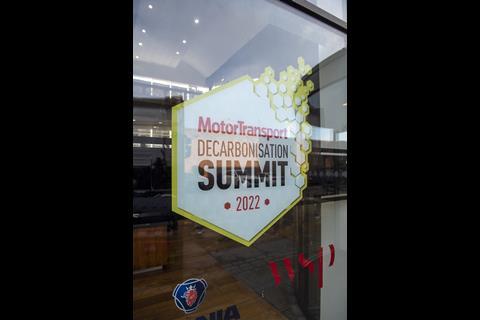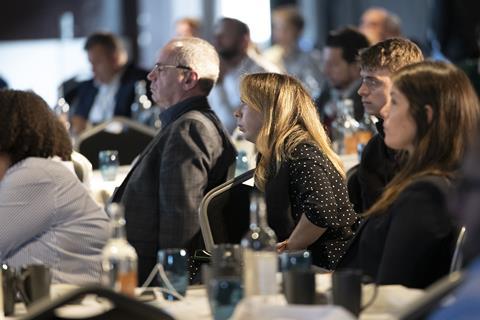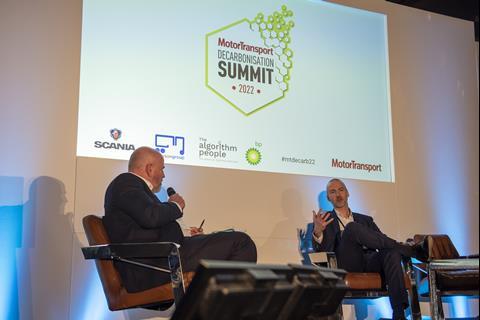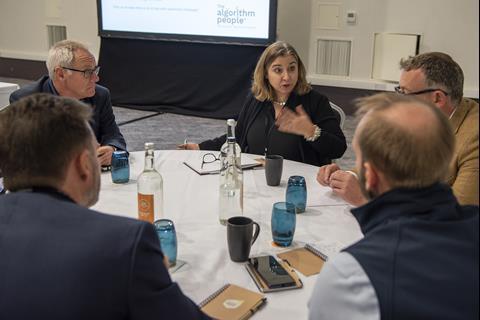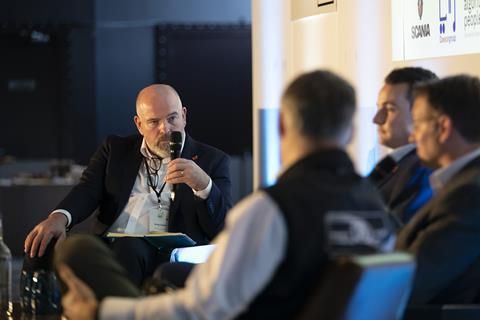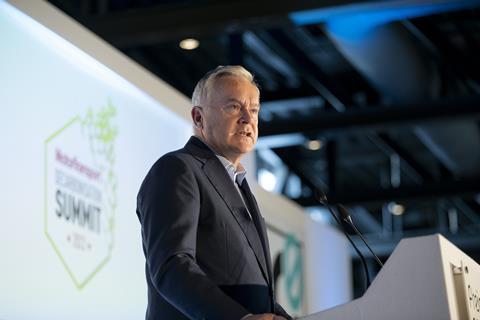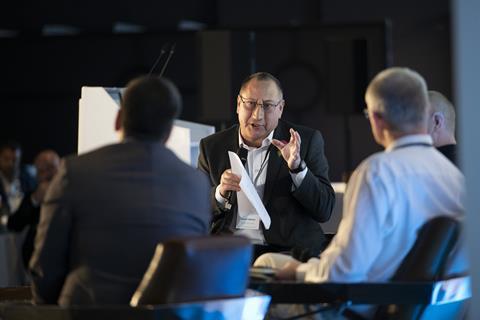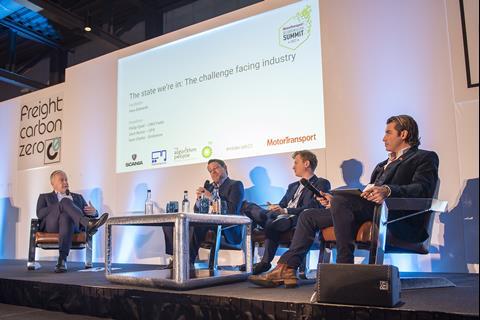Presentations and discussions at Motor Transport’s Decarbonisation Summit 2022, which took place in Liverpool last week (9 Nov), were focused on the need for major improvements in energy infrastructure. The common theme from the keynote speakers and panel discussions was more investment in and clarity of requirements for charging or hydrogen infrastructure is essential if the road freight industry is going to have any chance in meeting its carbon zero targets in the next 15 years.
Nearly 150 delegates, drawn from freight operators, suppliers and other industry thought leaders, came together for the inaugural event run in partnership with bp, Dawsongroup, Scania and The Algorithm People to discuss the challenges associated with decarbonisation of road freight and start work on what needs to be done. Chaired by BBC News broadcaster Huw Edwards, the keynote presentation on behalf of the industry was given by Justin Laney, fleet manager at John Lewis Partnership who reconfirmed the company’s commitment for its fleet to be fossil-free by 2030 and welcomed the UK government’s engagement with industry and the announcement of the Zero Emission Road Freight Demonstrations (ZERFD), which will be an important step forward in developing the use case for carbon-zero technology. Laney requested the government focus on a single energy solution - a view not universally shared by the attendees.
Responding on behalf of government, Bob Moran, head of decarbonisation strategy at the Department for Transport, reiterated the commitment to the phase-out of diesel trucks by 2035 (up to 26t GVW) and 2040 (all trucks), explaining the ZERFD trials will be essential to understand the infrastructure needs to support the carbon zero trucks: ”I’m more convinced than ever, that we don’t need to trial the on-vehicle technology,” he said, explaining the purpose of the multi-million pound demonstrations. ”We need to know what the infrastructure looks like, where it needs to be and how it operates with big fleets, running 24/7 logistics operations.
”[The demonstrations] bring manufacturers, fleet operators, energy providers and infrastructure operators together to work this out in real time,” he continued. ”We’ll work out together how the vehicles function in commercial operations, so we know where to install charging and refuelling infrastructure and build confidence and speed in its mass rollout.
”We’ll publish the data and we’ll publish a plan for infrastructure too. The phase out dates [of diesel trucks] are not going to shift to the right. We will regulate to ensure they are delivered.”
A series of workshops covering infrastucture, vehicles, operations and innovations gave attendees the opportunity to deep dive around the subject matter and share their experiences and concerns, while the lively panel discussions covered a range of topics from consumer choice, through the cost of decarbonisation and the new business models emerging, through the energy ecosystem and the considerations needed for grid connections to unlock depot-based charging.
A full report from the conference can be found in our special Motor Transport supplement.

Supporting documents
Click link to download and view these filesLaney_Summit_Presentation
PDF, FileSizeText 0.7 mbCraughan_Summit_Presentation
PDF, FileSizeText 13.3 mbForsberg_Summit_Presentation
PDF, FileSizeText 5.81 mb








